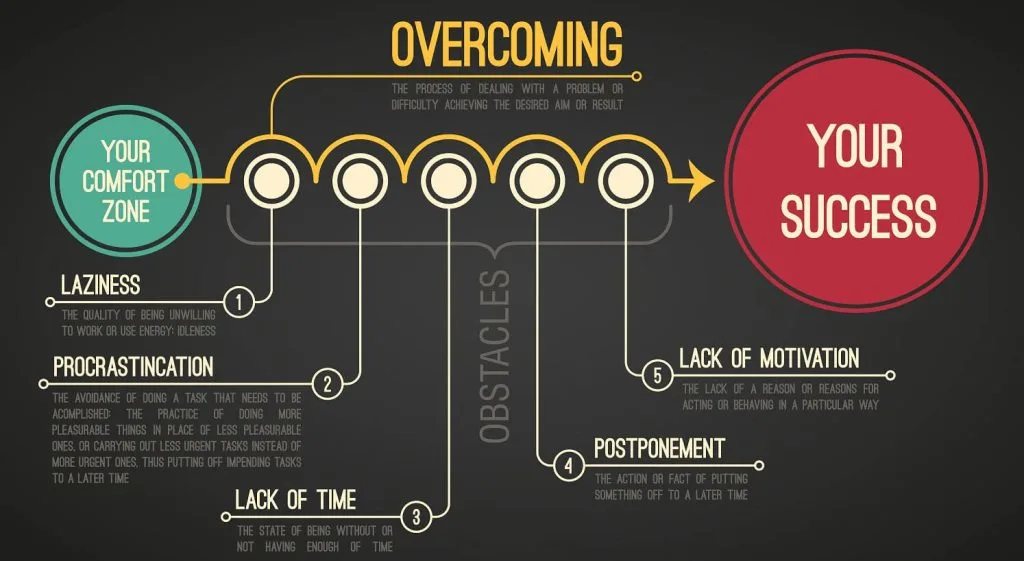It’s all too easy to diagnose yourself with laziness.
We are all lazy sometimes, but here we are talking about cases when you simply cannot go to work or do not want to work at all because laziness prevents you.

It is difficult to give an exact explanation of what laziness is because the criteria for laziness vary from person to person.
For someone, it’s laziness when you don’t wash your clothes on time, while for someone, it’s when you don’t get a promotion at work.
Instead of declaring yourself lazy in advance, isn’t it better to ask yourself why you feel that way?
Lack of motivation is mentioned as the main reason for laziness. Isn’t it better to ask why I feel so unmotivated then?
Here are the reasons why you think you are too lazy to work:
You convinced yourself that you are too lazy to work
Self-diagnosing yourself is bad, although laziness is not a diagnosis but a personality trait.
You’ve heard of the power of positive affirmations. Just as there are positive affirmations, there are also negative ones. A negative belief is that you are lazy.
You may also think you are too old, insufficiently educated and that everyone is better than you, so your only option is to be lazy instead of finding a job.
You’ve convinced yourself of that and come to terms with it. In this way, you are only harming and limiting yourself.
Bad work ethic and organization skills
During the development of your personality, maybe you did not develop a good work ethic and approach to work.
You also lack organizational skills in other aspects of life, not only in work.
Also, if you don’t take care of yourself, you may become lazy. Here, we mean the quality of life, such as healthy eating, getting enough sleep, physical activity, etc.
Lack of work motivation

The most common cause of laziness is a lack of motivation.
Lack of motivation can be reflected in the fact that you don’t want to go to work, don’t want to work, and are not even interested in looking for a job.
The environment in which you work can be demotivating, especially if you had other life plans and ended up in a job that you don’t like at all.
Maybe you aren’t clearly interested in what you would like to do. If you have reached the peak of your career, you can lose motivation because nothing makes you keep motivated anymore.
A huge silent killer of motivation can be the comfort zone.
The comfort zone is comfortable and safe, but it is also limiting. It binds us firmly with its security and does not allow us to seek new challenges.
Fear of failure and lack of self-belief
For some people, the fear of failure can be a huge motivator, while for others, it can be a reason for laziness. Why start something at all when it fails, or it is possible to fail? That is the logic by which they are guided.
Lack of self-belief is also a significant cause of laziness. You think you are not good enough for the job you want.
Here we come to the concept of imposter syndrome, where we fear that we are inadequate for our work and that everyone will discover that.
You suffer from apathy
This is a more serious condition. Although it is not considered a mental illness, it is associated with many mental illnesses. Apathy is most closely associated with depression.
Lack of will and interest in anything is a symptom of apathy. You don’t feel like working when you are in such a serious condition.
How to stop being lazy? Here are 6 tips:
Stop negative self-talk
Constantly putting yourself down will get you nowhere. Instead of talking negatively about yourself, try to focus on what is positive about you.
Look at your achievements so far, and ask yourself what qualities can lead you to the job you want.
Don’t be too hard on yourself. Allow yourself to fail; that is all part of life too.
Improve your organizational skills

It may sound complicated, but it is possible with minor changes daily. First of all, be open to changing your mindset. Just because you have a bad work ethic doesn’t mean you can’t change it.
Be realistic about your obligations, don’t give yourself more than you can fulfill.
Also, don’t forget to reward yourself. Life is not all about work, so you should give yourself a break from time to time.
Find your motivation
This also sounds too complicated and broad, but let’s explain.
There is a saying: If you do what you love, you’ll never work a day in your life. What is it that you like to do? Do you have a dream job?
This may sound a bit too romantic to you, but the harsh reality is that you find yourself doing a job you hate that will kill your motivation.
We can’t all just quit our jobs to chase our dreams and thus lose our financial security. There is a solution for that too.
Let the work that you love motivates you to be a side hustle at the beginning and the work that makes your living your primary job.
Over time, if you are persistent, the side hustle can become the main thing, and you can suddenly do what you love and be happy about it.
Don’t let your comfort zone limit you

We have already established that comfort zones are comfortable, but we easily get lazy.
Think of it this way: you might lose an opportunity in desperate need of security.
Take more care of yourself outside of work
Everything is connected in life. If you don’t take care of yourself privately, you can easily become lazy at work. When you are privately happier, it will be easier and more fulfilling for you to work.
Eating healthy, getting enough sleep, exercising, and finding a new exciting hobby. These are all excellent choices to avoid the abyss of laziness.
If you suffer from apathy, consider therapy
Laziness and apathy are not mental illnesses, as we have already established, but they are closely related to some mental disorders.
Do not minimize the seriousness of the situation, especially if it has been going on for a long time and you cannot see a way out of it. Consulting a psychiatrist is necessary in that case.
To conclude,
Don’t call yourself lazy and thus create that belief, but try to find the source of the problem.
When you find the cause of your supposed laziness, you can take steps to solve it. With small daily changes, anything is possible.
It’s time for laziness and lack of motivation to leave your life and for activity and motivation to enter. Good luck!
